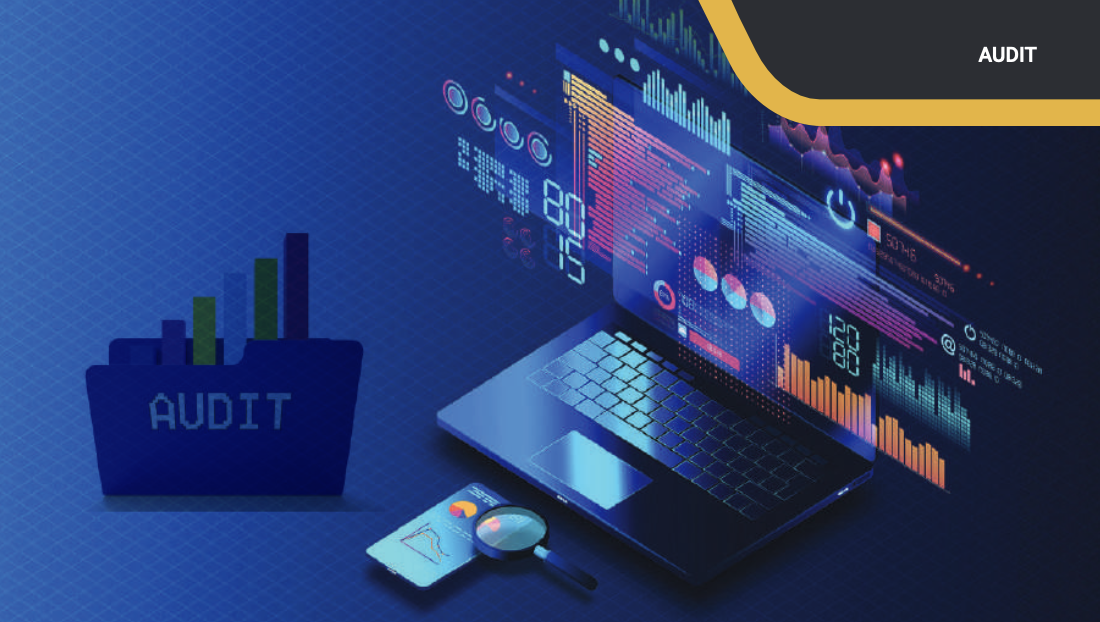Technology is a critical driver of efficiency and productivity in the internal audit function
By CPA Abdallah Mambo Dallu
If you work in a company or an organization that wants to improve the effectiveness of risk
management and governance processes or just wants to boost the company generally, you are
probably familiar with internal auditing.
Internal auditing is a consulting activity which is conducted independent of an organization’s normal operations, with the objective to examine (“audit”) the operations and processes, to validate them (“assurance”) and to identify any shortcomings or risks and also to recommend steps to improve them.
However, it is more than likely that human error and human biases do play a part within these audits, and if not caught in time, these could cause potential harm and risk to the organization. So, what can be done to diminish potential risk and biases? The answer is artificial intelligence!
What is Artificial Intelligence?
Artificial Intelligence (AI) is a simulation of human intelligence processes by computers. A central hallmark of an AI system, is that it learns from each operating cycle (feedback loop), and thus improves its performance (becoming more “intelligent”) during each successive iteration by correcting its mistakes and improving upon them. For example, some common applications of AI in everyday life…
a) Automatic classification of certain incoming emails as “Spam” by your email program, and subsequent
improvement in its performance as you correct any mistakes the program makes during its initial
cycles of operation.
b) When you are scrolling on social media, such as Facebook or when you are using search engines such as Google, you may see advertisements targeted directly for you, and then becoming better at showing you adverts by remembering which ones you clicked on earlier and which ones you did not respond to.
So how does it work within an organization or company?
The AI Process
AI analyzes and processes large amounts of data and develops an “algorithm.”
An algorithm is a fancy name for a set of rules for a machine to follow that allows the machine to take over timeconsuming, repetitive, and tedious tasks that professionals may have to perform daily. This then saves time and increases productivity/work efficiency for financial professionals and accountants.
The AI algorithm can also quickly process vast amounts of data accurately and without growing weary or making mistakes due to lack of attentiveness! With the algorithm set, patterns can then be identified from the mountains of data (thus giving rise to terms such as data mining) and issues can be resolved more
quickly and efficiently by leveraging these discovered “gems”
Some examples of this in the financial state would be the tracking of ledgers, transactions, and other records.These detected patterns are even more useful as they are identified through continuous monitoring that is happening in real time.
Potential benefits of AI to audit
Technology is a critical driver of efficiency and productivity in the internal audit function. The adaptation and use of AI have already taken place at some audit firms. Audit functions use AI to do tasks such as reading leases to identify key terms, patterns, and outliers. With this in effect, it allows auditors to focus on anomalies and potential high-risk items.
Audit quality, speed, competition for efficiency, the continuous monitoring, the performance accuracy, and stressfree audits are the benefits of AI adoption in the workplace. AI and auditors can work together to enhance workflow and efficiency. AI does not replace an auditor’s decision making, judgment, or assessment interviews.
It does enhance their effectiveness by giving them more tools and potential findings to work with.
AI can help the internal audit process by accelerating the planning and execution of activities related to corrective and preventive actions. Internal auditors can help an organization evaluate, understand, and communicate the degree to which AI will have an effect on an organization with an ability to create
value. This can happen either in the short, medium, or long term.
Key Internal Audit Considerations for Artificial Intelligence
Here are four considerations for audit teams seeking to effectively audit artificial intelligence, as well as take advantage of this technology:
Know Your Data
Being mindful of where the data is, how it is constructed, how accessible it is, and how dependable it is, will be pivotal in successfully auditing it and resolving how to appropriately manage any associated risk.One common data-related issue is that when data used by AI algorithms is skewed to a narrow demographic, the results will also be skewed; thereby posing risks of varying degrees.
To assist in the reduction of bias in data, responsibility tools are increasingly becoming available for development teams, with examples including Google’s Know Your Data, released in Beta earlier
this year, and IBM’s AI Fairness 360.
Embrace New Technologies
Forward-thinking internal audit functions are open to emerging technologies, but you don’t need to
jump in the deep end when trying to determine if AI will be a “value add”. Bring advanced technologies into the function where and when it makes sense. Robotic Process Automation (RPA), a subcategory of artificial intelligence, is an example of a powerful tool that can aid in reducing time spent on repetitive
tasks, freeing up auditors for activities that require more judgment and business acumen.
Adopt an “AI-Enabled” Mindset
The most successful organizations and functions don’t only behave differently, they think differently. In executing audits affiliated with artificial intelligence or in employing artificial intelligence empowered technologies, seek to be “AI-Enabled”, auditing and acting in a consistent manner where feasible, with operational approaches frequently evolving based on signals from resultant data.
Many companies find themselves employing artificial intelligence in siloed environments on a use-caseby-use-case level. With its visibility across the organization, internal audit is well positioned to be a key influencer and advocate for interdisciplinary collaboration. Internal audit will also benefit from in creased collaboration and consistency in how teams develop AI across the organization to reduce audit
complexity in the long run.
Stay in the Loop on AI
By keeping abreast of AI-related news, resources, and frameworks created by subject matter experts, you can accelerate the introduction of artificial intelligence risk management practices and minimize all of the unpleasant bewilderment. AI provides many benefits for internal auditing that include improving workflow and efficiency and minimizing risk and harm by identifying them sooner.
AI can help auditors and financial professionals by taking care of tedious and time-consuming tasks, thus
saving time and increasing productivity and efficiency. An AI algorithm is a self-learning process and it becomes more intelligent in identifying certain patterns and becomes quicker in resolving issues, over
time, as it processes the correctness of each iteration and adjusts prior to the next cycle of operation.
In a quick and ever-changing technological world, AI is an effective tool being adopted quickly into many
companies and organizations to improve the work environment and lives of many people all over the world every day. Every day it shows further improvement and advancement.
The writer is the Chief Internal Auditor & Compliance Officer UMMA UNIVERSITY




